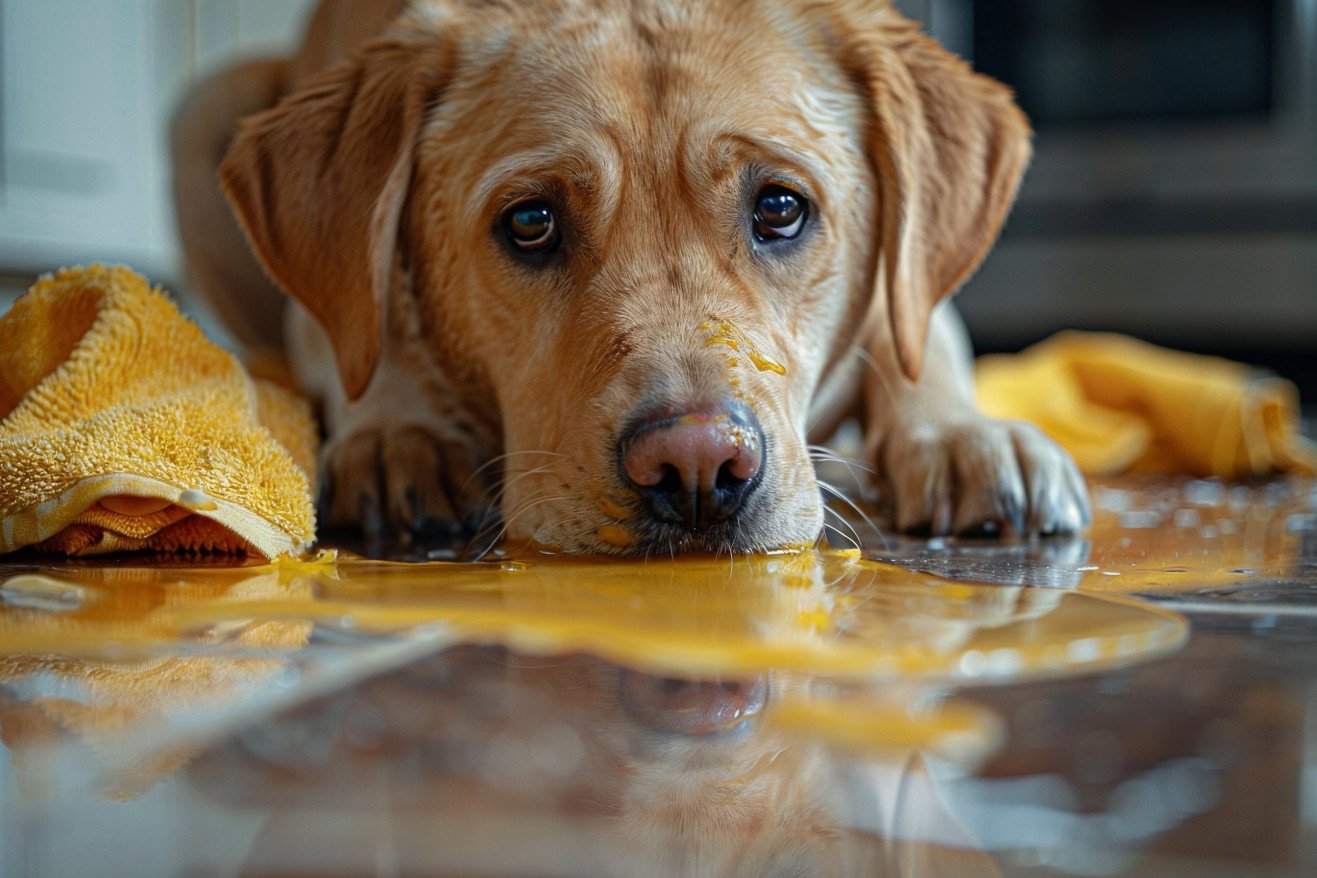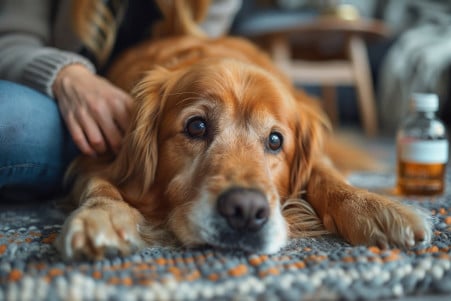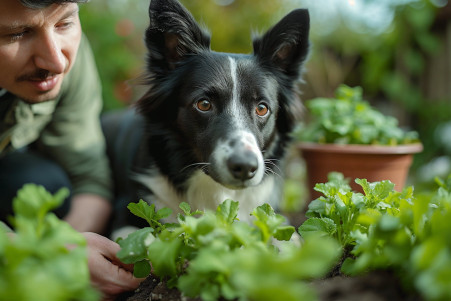Can Dogs Be Around Pine-Sol? A Comprehensive Investigation
11 May 2024 • Updated 9 May 2024

If you’re a dog owner, you may have asked yourself if Pine-Sol and other common cleaning products are safe to use around your pet. The truth is, the safety of Pine-Sol and similar products depends on a variety of factors, including the product’s specific ingredients, the amount of exposure, and the precautions you take. In general, Pine-Sol is safe to use around dogs as long as you follow the instructions and use it on surfaces that dogs can’t eat or lick directly. However, Pine-Sol’s phenolic compounds can cause stomach upset if ingested, so it’s important to let Pine-Sol dry completely before allowing your pet back into the area.
By examining veterinary studies, safety recommendations, and expert opinions, we can better understand the potential dangers of Pine-Sol exposure for dogs. This investigation will explore the effects of various chemical ingredients, the best practices for using Pine-Sol around dogs, and alternative cleaning products that prioritize the health of our furry friends. With this information, you can be sure that you’re keeping your home clean without risking your dog’s well-being.
Is Pine-Sol safe for dogs?
Symptoms and Treatment of Pine-Sol Poisoning in Dogs
According to the Pet Poison Helpline, common symptoms of Pine-Sol poisoning in dogs are vomiting, diarrhea, lethargy, loss of coordination, and difficulty breathing. If ingested or exposed, Pine-Sol can also cause irritation to the mouth and throat. Immediate action is necessary, and the affected area should be flushed with water and then the dog should be taken to the vet.
Treatment for Pine-Sol poisoning may include decontamination, IV fluids, activated charcoal, oxygen therapy, and monitoring for respiratory distress or organ damage. The severity of the poisoning depends on the amount ingested, exposure level, size, and overall health of the dog. Ingesting Pine-Sol can be fatal in severe cases, so it’s important to take your dog to the vet right away if you suspect Pine-Sol poisoning. Although this can be scary, knowing what to look for can help you act quickly and reduce the risk of harm to your pet. This information can also help you find alternative cleaning products that are safe for your pets.
Pet-Friendly Pine-Sol Alternatives
There are many natural, pet-safe cleaning products and DIY solutions that can be used in place of Pine-Sol to keep your house clean without putting your dog at risk. The American Kennel Club suggests that vinegar, baking soda, lemon juice, and hydrogen peroxide can be mixed together to make all-purpose, glass, and floor cleaners that are safe for dogs.
Veterinarian Dr. Chyrle Bonk also notes that enzymatic cleaners and steam mops are pet-safe cleaning products that don’t contain toxic chemicals. No matter what cleaning products you use, it’s important to make sure you’re following the directions, using them in a well-ventilated area, and keeping your pets off of surfaces that are being cleaned until they are completely dry.
You can also refer to lists of pet-safe cleaning products and databases to find non-toxic cleaning products that are safe for your pets for a variety of cleaning needs. By using these natural cleaning products, pet parents can make sure their homes are clean and safe for their dogs.
Decontamination and Safe Cleaning After Pine-Sol Exposure
If you have experienced a Pine-Sol spill or another type of accidental exposure in an area where pets are present, it is important to decontaminate and clean the area to keep your pets safe. The Working Dog Forums recommends removing all pets from the area immediately and providing fresh air or ventilation to help clear the fumes.
After that, the spill or residue should be cleaned up using a pet-safe, non-toxic cleaner or solution, like diluted vinegar or baking soda, as suggested by Branch Basics. Make sure to rinse and dry the area thoroughly, removing any Pine-Sol residue before letting your pets back into the area.
To ensure the area is fully decontaminated, Pine-Sol's FAQ recommends looking into a pet-safe disinfectant or enzymatic cleaner. This will make sure that any remaining traces of the chemicals are removed and that your pets are safe.
How to Ventilate Your Home After Pine-Sol Exposure
Even after cleaning up a Pine-Sol spill or exposure, the area may need to be properly ventilated for an extended period before it is safe for pets to return. According to the Danger - Pinesol is toxic to dogs website, Pine-Sol fumes and residual chemicals can hang in the air and on surfaces, leading to potential respiratory and other health issues for dogs if they are inhaled or ingested.
To ensure that the air is safe for pets to breathe, experts suggest several hours of ventilation, or even up to a day or more, depending on the level of exposure and the size of the area. During this time, pets should be kept away from the area that was exposed to Pine-Sol, and windows and doors should be opened to allow for proper air circulation.
In addition, it’s important to store any remaining Pine-Sol products securely and out of reach of pets to prevent future accidental exposures. By taking these steps, pet owners can make sure that their pets are safe from harm when using Pine-Sol or cleaning up after an exposure.
Conclusion: How to Keep Your Home Clean and Safe for Your Dog
There are many natural, pet-safe cleaning alternatives and DIY solutions that can be used in place of Pine-Sol to keep your home clean without putting your dog at risk. The American Kennel Club lists vinegar, baking soda, lemon juice, and hydrogen peroxide as ingredients that can be mixed to make effective all-purpose, glass, and floor cleaners.
Veterinarian Dr. Chyrle Bonk also suggests enzymatic cleaners and steam mops as safe cleaning products to use around pets because they don’t contain harsh chemicals. Regardless of the cleaning products you use, it’s important to always follow the manufacturer’s instructions, make sure the area you’re cleaning is well-ventilated, and keep your pets away from the area until the surface is completely dry.
You can refer to pet-safe cleaning product guides and databases to find non-toxic, pet-safe cleaning products for a variety of cleaning needs. By using these natural alternatives, dog owners can keep their home clean and safe for their furry friends.


